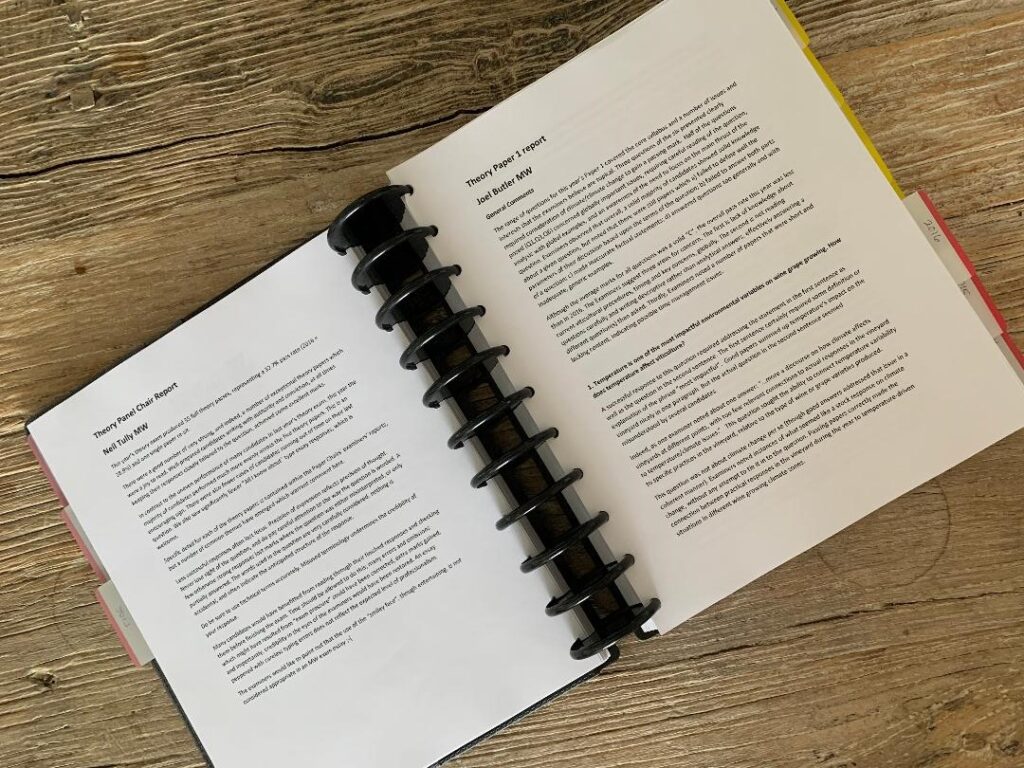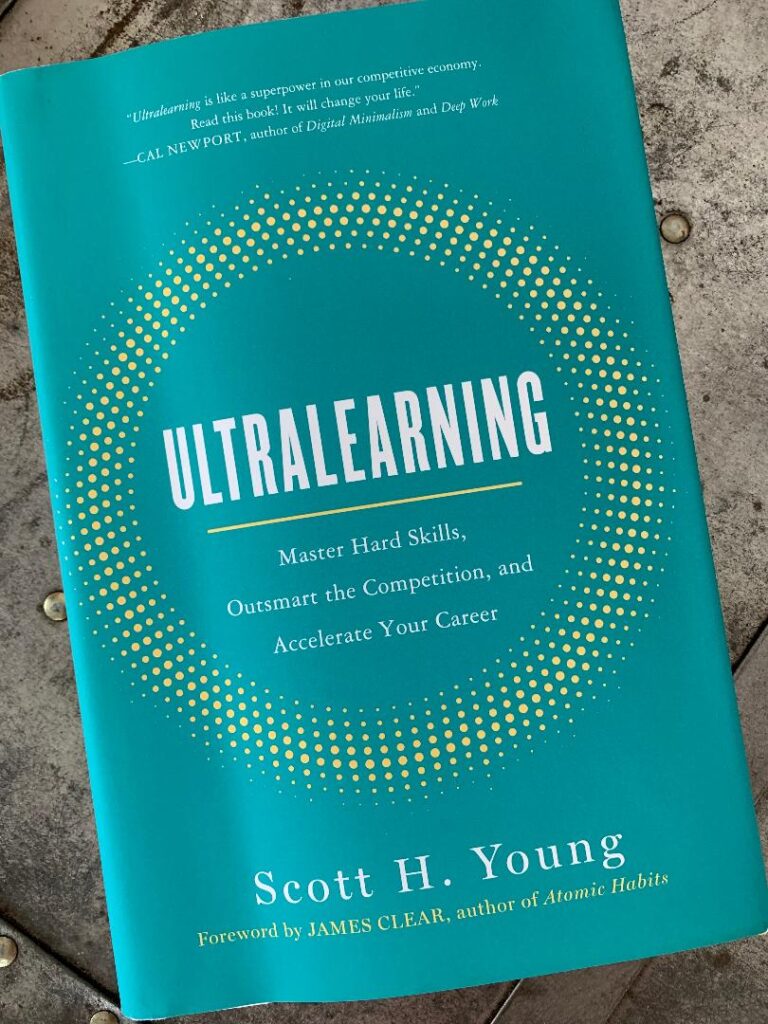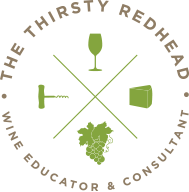Alright, so if you’ve gone after any wine credential, WSET, the Court, Wine Scholar Guild, etc., you clearly already love studying wine, and acquiring more and more knowledge about the wine world. But preparing for these higher-level exams has the additional complexity of figuring out how to study and pass these exams.
Different Kinds of Knowledge
Antony Moss, MW, has a document running around MW study groups that lays out the different levels of knowledge. I find this very helpful to review as you start to build your study plan.
- Factual recall: At the very basic level of education is factual recall. Just straight-up testing basic knowledge. It’s the what. Priorat is an appellation in Spain.
- Explanations: From there, you move into explanations, which is more or less, stating why things are the way that they are. Discuss the style of Priorat.
- Analysis and argument: this is where most higher-level wine exams live. Here we move into the theoretical and practical (as in, real-world realities) of how the wine world could be. How can a Priorat winemaker influence the final alcohol level of their wine, and why might this be required?
I can only speak to the Master of Wine exams, but here, we’re not just doing a direct factual recall. That said, you need to remember facts like the legal limits of sulfur dioxide in different countries, or be able to cite your examples to illustrate your book knowledge accurately. But the MW exams are not based on factual recall.
And while some past essay questions do ask for explanations of processes, there will usually be some analysis and argument elements. MW candidates need to move from facts and book learning to demonstrating “applied knowledge.” You need to demonstrate that you know what it’s like in the real world.

I highly recommend printing out the past ten years of the Examiners’ Reports and study them. These reports give you the clues as to what the examiners are looking for a Master of Wine to demonstrate, both in the feedback to individual questions as well as their general comments. Many of these clues are repeated year after year, including one that emphasizes the importance of demonstrating “applied knowledge”.
“In summary, candidates looking to elevate their marks would be well advised to consider first whether they are writing with an appropriate level of depth and detail, secondly whether they are showing evidence of critical analysis. This should all be conveyed in a suitable tone, and underpinned with appropriately chosen examples.”
2019 Examiners’ Report
Start your plan with metalearning
As I mentioned last week, I’ve really been getting into the science of learning, and among my favorite books is one by Scott Young called Ultralearning. This is a guy who learned the curriculum of MIT’s four-year computer science undergrad program in one year, passing the final exams and everything. This guy knows how to design a successful study program.
He defines Ultralearning as a strategy for acquiring skills and knowledge that is both self-directed and intense. Sounds familiar? While parts of the Master of Wine journey are fun, it’s not the kind of study program you can work on when convenient for you.
His first principle of Ultralearning he calls metalearning, which means learning about learning.
My biggest study mistake in years past is that I was studying according to the syllabus. For example, the paper one syllabus mentions rootstocks. Awesome.
With rootstocks in mind, I would then read everything on rootstocks and capture my notes from that reading in a word document called Rootstocks. It was an exhausting process, and I never really got any topics finished because acquiring knowledge can go on forever!
Not only that, but when I finally got around (if ever) to writing a few outlines of past essays, I couldn’t reproduce what I learned. So I went back and studied some more, which would prompt me to go back and try to ‘learn more’ about rootstocks. It was an exhausting cycle.
I was diving into the research linked to the syllabus using resources that I had in front of me. Tim Wildman, MW of WineTutor.TV was the first one to clue me in that candidates’ research should be linked to the EXAMS via the syllabus.
By the way? That’s why I now have the Examiners’ Reports in front of me at all times.
Back to metalearning…the first step is to draw up the map of your plan to learn something. My mistake was that I just used the syllabus, a single word really, and went head-first into books.
Today, before diving into the books, I took a closer look at how these MW syllabus subjects work. I analyzed what kind of skills and information must be mastered for each topic, and thought about what methods are available for me to do this most effectively.
Because understanding what you’re trying to learn will help you evaluate different study plans in order to fit your goals.
Concepts, facts, and procedures

Scott Young in Ultralearning breaks down study topics into three buckets: concepts, facts, and procedures.
This is brilliant.
Using the past exams, think about rootstocks: what are the basic concepts (what do I need to understand about rootstocks). What facts do I need to memorize (all of those examples of who does what where and why). And procedures (understanding grafting of rootstocks might be needed here).
Again, I’m going to use the past exams to guide me in answering those questions. Past exams will help you limit the scope of what you’re trying to study much more effectively than studying the open-ended word ‘rootstocks’ via the syllabus. This is what is meant by your research should be linked to past exams via the syllabus.
Take plenty of time to design your plan
That’s the framework I started to design my study plan with. I took a full three weeks going through the past exams and the Examiners’ Reports to brainstorm about how this body of knowledge is structured, and what kinds of concepts, facts, and procedures I need to master in order to be successful.
Within those three weeks, I did get a little more granular and organized the past exams into specific topics, which will be a future post.
If you’re in the program, you’re already aware that there is no ONE WAY to skin this cat. And, again, I’m not even sure that what I’m doing is ultimately going to be successful. So take all advice with a grain of salt, including mine.
Hopefully though, some of this discussion was useful in helping you design your own study program!
Metalearning (50 weeks to go)

